February 2020
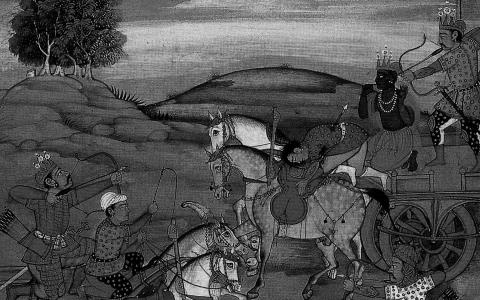
গীতার ত্রয়োদশ অধ্যায়ে, কৃষ্ণ যেসব বিভিন্ন গুণাবলীর বর্ণনা দেন, সে সকলই প্রকৃত গুণের পরিচায়ক (ভ. গী. ১৩.৭-১১)।
অমানিত্বমদম্ভিত্বং অহিংসা ক্ষান্তিরার্জবম্ |
আচার্যোপাসনং শৌচং স্থৈর্যমাত্মবিনিগ্রহঃ |৭|
ইন্দ্রিযার্থেষু বৈরাগ্যং অনহঙ্কার এব চ |
জন্মমৃত্যুজরাব্যাধি দুঃখদোষানুদর্শনম্ |৮|
অসক্তিরনভিষ্বঙ্গঃ পুত্রদারগৃহাদিষু |
নিত্যং চ সমচিত্তত্বং ইষ্টানিষ্টোপপত্তিষু |৯|
মযি চানন্যযোগেন ভক্তিরব্যভিচারিণী |
বিবিক্তদেশসেবিত্বং অরতির্জনসংসদি |১০|
অধ্...
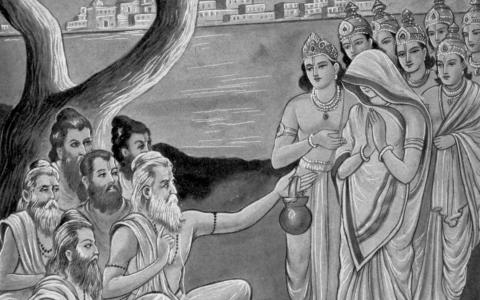
Thirty-six years after the Mahābhārata War transpired, yet another catastrophe struck. Once, the three mahaṛṣis – Viśvāmitra, Kaṇva, and Nārada – came to Dvāraka. Sāraṇa and other Yādavas desired to play a prank on them; they got Sāmba, one of the Yādavas, dressed as a girl and took him to them with a request: “This is Babhru’s wife; he wishes a son to be born to him. Now, will this damsel give birth to a boy or a girl, please tell us! You are...
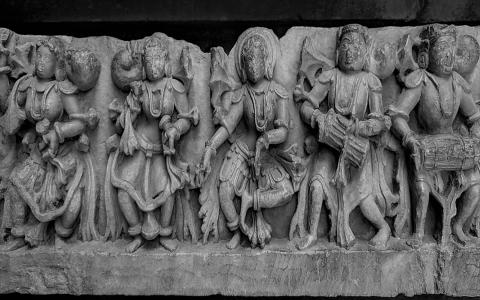
ಉಪಕ್ರಮ
[ಈಗಾಗಲೇ ಹಲವು ಲೇಖನಗಳಲ್ಲಿ ನಾನು ನೃತ್ಯ, ನಾಟ್ಯ ಮತ್ತು ಯಕ್ಷಗಾನಗಳನ್ನು ಕುರಿತಂತೆ ಹೇಳಿರುವ ಕಾರಣ ಅವುಗಳನ್ನೆಲ್ಲ ಹಿನ್ನೆಲೆಯಲ್ಲಿರಿಸಿಕೊಂಡು ಸದ್ಯದ ಬರೆವಣಿಗೆಯನ್ನು ಸಹೃದಯರು ಗಮನಿಸಿಕೊಳ್ಳಬೇಕೆಂದು ವಿನಂತಿ. ಮುಖ್ಯವಾಗಿ “ಸೋದರಕಲೆಗಳ ನಡುವೆ ಯಕ್ಷಗಾನ,” “ಯಕ್ಷಗಾನ: ಒಂದು ದೇಶೀಯ-ಪಾರಂಪರಿಕ-ರಂಗಕಲೆ,” “ಯಕ್ಷಗಾನದಲ್ಲಿ ನವೀನಸುಧಾರಣೆ-ಪ್ರಯೋಗಗಳ ಸಾಧ್ಯತೆ: ಒಂದು ಮೀಮಾಂಸೆ,” “ಬಡುಗುತಿಟ್ಟಿನ ಆಂಗಿಕಾಭಿನಯ,” “ಏಕವ್ಯಕ್ತಿಯಕ್ಷಗಾನ: ತತ್ತ್ವ ಮತ್ತು ಪ್ರಯೋಗ,” “ನೃತ್ಯ-ನಾಟ್ಯಗಳನ್ನು ಅನುಲಕ್ಷಿಸಿ ಅಭಿಜಾತಕಲೆಗಳ ನೆಲೆ-ಬೆಲೆ,” “ರಸೈಕ್ಯವಿಲ...

Sinister view
I have told that my youngest grandfather was someone who indulged in loose talk. His view was also sinister. Sometimes he used to talk ill of my maternal grandmother Sakamma who was an extraordinary woman. With her being in the house, it had brought in a sense of good conduct, regulation and discipline. But our Sheenanna was opposed to being disciplined, “Who is she to this house?”, was his feeling. With such feelings came abusive...
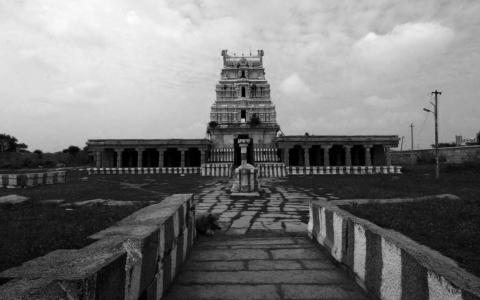
My father was down with an illness. He was not in a condition to speak. His body and hand movements were also limited. When this was the situation, one morning at around nine, three to four Muslim men visited our house and told me, “We have come to see our teacher.”
I said, “He is extremely tired and he is unable to even speak.”
“We will not engage him in talk. We will just see him with our eyes, perform salām, and then we will return. Please...
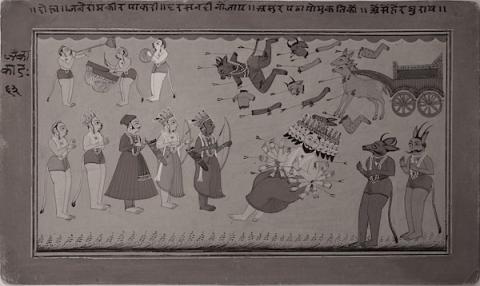

பிரம்மசாரி தர்மம்-மாணவனுக்கான விதிமுறைகள்[1]
பிரம்மசாரி அக்னியைச் சுற்றி வலம்வந்து ஆஹுதி அளித்ததும், "நீ ஒரு மாணவன். நீர் அருந்து. அமைதியைக் கடைபிடி. சமித்தை அக்னியில் இடு..."[2] என்றெல்லாம் ஆசாரியர் மாணவனுக்கான விதிமுறைகளை அவனுக்கு போதிக்கிறார். "நீரைப் பருகு. சந்தேகமில்லாமல், நீரே அம்ருதம்! நீ இந்த அம்ருதத்தைப் பருகு! உன் கடமையைச் செய். சந்தேகமில்லாமல், கடமையே வீரியம். வீரியத்துடன் இரு! அக்னியில் சமித்தை இடு. உன் மனதில் ஞான விளக்கை ஏற்று. தூங்...

Dhṛtarāṣṭra asked Vidura and Gāndhārī to advise Kuntī to go back with her children. He said that she can perform tapas in the kingdom and she had served them very well so far. Kuntī would not budge to anybody’s words and she went ahead as per her decision. The Pāṇḍavas were now orphaned.
Dhṛtarāṣṭra and the others trugged over a long distance and arrived at a tapovana on the banks of the river Bhāgīrathī. They were used to living in the city...

“Bamboo doesn’t bend. Sun is the real thief”:
जनश्रुतिं यदाहिरीनिवेदकोऽह्नि नान्नभा-
गिति प्रमार्ष्टुमागतः सभोजनो वनं प्रगे।
निधाय भाजनं नते तृणध्वजेऽलपत्ततो
न मस्करो नमस्करोत्यहस्करो हि तस्करः॥[1]
Desirous to disprove the popular belief among musicians that one will be without food if he sings the rāga Āhiri during day, a smart chap went to a forest in the early hours of the day, hung his food basket on a leaning bamboo tree and started singing...
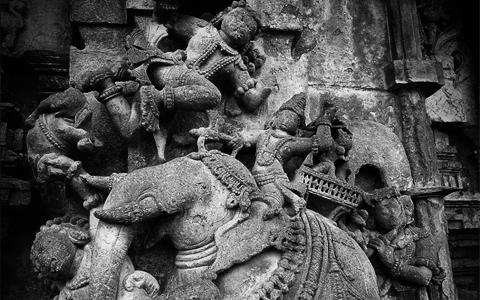
ಅಂದು ರಾತ್ರಿ ದ್ರೌಪದಿ ಏನು ಮಾಡಬೇಕೆಂಬುದನ್ನು ಸೂಚಿಸಿ, ರಾತ್ರಿ ಕೀಚಕನ ಬಳಿಗೆ ಸೈರಂಧ್ರಿಯ ವೇಷತೊಟ್ಟು ವೈಯಾರವಾಗಿ ಬರುವ ಭೀಮನ ರೂಪು ಹೀಗಿತ್ತಂತೆ
ಉರಿವ ಮಾರಿಯ ಬೇಟದಾತನು
ತುರುಗಿದನು ಮಲ್ಲಿಗೆಯ ಮೊಗ್ಗೆಯ
ನಿರಿಕಿ ತಾ ಪೂಸಿದನು ಸಾದು ಜವಾಜಿ ಕತ್ತುರಿಯ |
ಮೆರೆವ ಗಂಡುಡಿಗೆಯ ರಚಿಸಿದ
ಸೆರಗಿನೊಯ್ಯರದಲಿ ಸುರಗಿಯ
ತಿರುಹುತಿರುಳೊಬ್ಬನೆ ನಿಜಾಲಯ ದಿಂದ ಹೊರವಂಟ || (ವಿರಾಟ ಪರ್ವ 3.81)
ಕೀಚಕನೊಡನೆ ಯುದ್ಧ ಮಾಡಲು ಭೀಮನ ಬಳಿ ತನ್ನ ದೇಹ ತನ್ನ ಬಾಹುಗಳೂ ಮುಷ್ಠಿಗಳಲ್ಲದೆ ಬೇರಾವ ಆಯುಧಗಳೂ ಇಲ್ಲ. ಅವನ ದೇಹವೇ ಒಂದು ಅಸಾಧಾರಣಶಕ್ತಿಕ...
